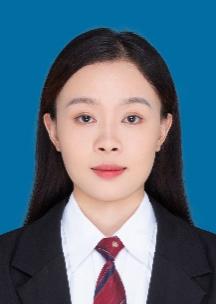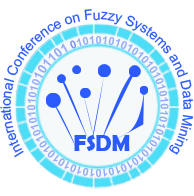Call for Special Sessions
Special session proposals should include the title, aim and scope (including a list of main topics), and the names of the organizers of the special session, together with a short biography of all organizers. A list of potential contributors will be helpful.
Special session proposals will be evaluated based on the timeliness, uniqueness of the topic and qualifications of the proposers. The proposers are expected to have a PhD degree and have a good publication track record in the proposed area. After review, a decision on whether the proposal will be accepted will be sent to the proposers within two weeks after receipt of the proposals. Accepted special sessions will be listed on the website. However, it is likely that an accepted proposal will be combined with another one to avoid multiple special sessions covering a similar topic.
Please send us the proposal via email: fsdm@fsdmconf.org
1. Special Session on "Granular-ball Computing"
Aims
The objective of this special session is to delve into the recent advancements in Multi-granularity Granular-ball Computing research and their applications in various disciplines. This dedicated session will offer a valuable platform for participants to gain insights into the cutting-edge developments in Multi-granularity Granular-ball Computing and foster connections with eminent experts in the field. Attendees can expect to explore the latest trends, innovative techniques, and emerging applications within the realm of Multi-granularity Granular-ball Computing, enabling fruitful discussions and collaborations in this exciting area of study.Here are some specific benefits that attendees can expect from this special session:
- Acquire in-depth knowledge of the latest advancements in Multi-granularity Granular-ball Computing research
- Explore diverse applications of Multi-granularity Granular-ball Computing in various disciplines
- Familiarize oneself with state-of-the-art models and development tools related to granular-balls
- Engage in networking opportunities with esteemed experts in the field of Multi-granularity Granular-ball Computing
- Draw inspiration from the latest research findings and innovations in the realm of Multi-granularity Granular-ball Computing.
Target and Contributors
The target and contributors include the following:- Prominent experts from academia who will share their expertise and perspectives on the industrial applications of Multi-granularity Granular-ball Computing.
- Managers and technicians from industrial sectors seeking to gain insights into how Multi-granularity Granular-ball Computing are being utilized to address real-world challenges, along with an understanding of their advantages and limitations.
- Graduate students interested in acquiring knowledge about the latest trends and development techniques in the field of Multi-granularity Granular-ball Computing.
Main Topics
Topics in this special session will include, but not limited to:- The generation of granular-balls improves the robustness, stability and so on.
- Classification model and method based on Multi-granularity Granular-ball Computing
- Granular-ball rough sets including classification decisions, knowledge representation and feature selection etc.
- Extended application of Multi-granularity Granular-ball Computing to clustering method and evaluation
- The application of Multi-granularity granular-ball computing in various scenarios of neural networks, including graph network classification, clustering, etc.
- Application of Multi-granularity Granular-ball Computing in the evolutionary algorithm
- The fuzzy set method based on Multi-granularity Granular-ball Computing
Submission Deadline for Abstracts (without full paper publication in conference proceeding or related journals): October 15, 2023
This special session is now open for submission and registration. Please submit your abstract/full paper via the Submission System and choose the option of Special Session on " Multi-granularity Granular-ball Computing ". After that, you can make the conference registration directly via the Registration Page or the conference secretary will contact you for further information.
Session Chair

Shuyin Xia National Excellent Youth, Professor, Doctoral Supervisor, Outstanding Youth of Chongqing, Top Talent of Chongqing Talent Year, Deputy Director of the Key Laboratory of Cyberspace Big Data Intelligent Computing Ministry of Education, Deputy Director of Frontier Interdisciplinary Research Institute, Deputy Director of Key Laboratory of Big Data Intelligent Computing.
He presided over 4 national key research and development projects and 4 projects of the National Natural Science Foundation of China. As the first author, he has published more than 30 papers in important intelligent journals such as IEEETPMAI, TNNLS, TKDE, and TCYB. He won the first prize of the Wu Wenjun Artificial Intelligence Technology Progress Award in 2021, and the 2020 Outstanding Scientific and Technological Achievement Award of the Chinese Association for Artificial Intelligence.
He presided over 4 national key research and development projects and 4 projects of the National Natural Science Foundation of China. As the first author, he has published more than 30 papers in important intelligent journals such as IEEETPMAI, TNNLS, TKDE, and TCYB. He won the first prize of the Wu Wenjun Artificial Intelligence Technology Progress Award in 2021, and the 2020 Outstanding Scientific and Technological Achievement Award of the Chinese Association for Artificial Intelligence.
Organizing Committee of this Special Session

Yabin Shao Postdoctoral Fellow, Professor, Master Tutor
He is a member of the North American Society for Fuzzy Information Processing, a member of the China Computer Federation, and a member of the Chinese Association for Artificial Intelligence, and serves as a member of several international conference program committees. He is mainly engaged in the mathematical theory, method and application research of uncertainty processing, including real analysis, fuzzy analysis, rough set theory, intelligent computing, big data processing, radar, electronic countermeasures and other engineering technology fields. Prof. Shao not only has published one textbook and one monograph, but also has authored and published more than 40 papers, 22 of which are indexed by SCI and EI. He has hosted and participated in the completion of 6 scientific research projects, including 4 national-level scientific research projects and 2 provincial and ministerial-level projects; participated in the completion of Natural Science Foundation projects and won 2 third prizes of Gansu Provincial Natural Science Awards. Currently he is presiding over one project of the National Natural Science Foundation of China and one project of the Natural Science Foundation of Chongqing. He is also deputy editor-in-chief of the international journal: Journal of Mathematics and Informatics (Professor L. Zadeh is the honorary editor-in-chief).
He is a member of the North American Society for Fuzzy Information Processing, a member of the China Computer Federation, and a member of the Chinese Association for Artificial Intelligence, and serves as a member of several international conference program committees. He is mainly engaged in the mathematical theory, method and application research of uncertainty processing, including real analysis, fuzzy analysis, rough set theory, intelligent computing, big data processing, radar, electronic countermeasures and other engineering technology fields. Prof. Shao not only has published one textbook and one monograph, but also has authored and published more than 40 papers, 22 of which are indexed by SCI and EI. He has hosted and participated in the completion of 6 scientific research projects, including 4 national-level scientific research projects and 2 provincial and ministerial-level projects; participated in the completion of Natural Science Foundation projects and won 2 third prizes of Gansu Provincial Natural Science Awards. Currently he is presiding over one project of the National Natural Science Foundation of China and one project of the Natural Science Foundation of Chongqing. He is also deputy editor-in-chief of the international journal: Journal of Mathematics and Informatics (Professor L. Zadeh is the honorary editor-in-chief).

Yunlong Cheng received the M.S. degree from Guangxi University, Nanning, China, in 2007. He is currently pursuing the Ph.D. degree with the Chongqing University of Posts and Telecommunications, Chongqing, China. He is also an Associate Professor with the College of Mobile Telecommunications, Chongqing University of Posts and Telecommunications. His research interests include analysis and processing of uncertain data, data mining, three-way decisions, granular computing, and rough sets.

Xiaoyu Lian is studying for a doctorate in computer science at Chongqing University of Posts and Telecommunications. Her research interests include machine learning, graph neural networks, fuzzy mathematics and so on. She has published papers on EI Core and JMIV, and is contributing papers in IEEE Transactions on Neural Networks and Learning Systems and Transactions on Fuzzy Systems.
2. Special Session on "Application of Generative AI"
Aims
The goal of this special session is to explore the latest advances in generative AI and their applications in a variety of fields. This special session will provide a valuable opportunity for attendees to learn about the latest trends in generative AI and to network with leading experts in the field.Here are some specific benefits that attendees can expect from this special session:
- Gain an understanding of the latest advances in generative AI
- Learn about the applications of generative AI in a variety of fields
- Learn about the modern models and development tools of generative AI
- Network with leading experts in the field
- Get inspired by the latest research in generative AI
Target and Contributors
The target and contributors include the following:- Leading experts from both academia and industry to share their insights on generative AI applications at industrial level.
- Management and technicians from industrial to learn about the applications of Generative AI on how it is being used to solve real-world problems, and what are their advantages and limitations.
- Graduate school students to learn about the generative AI trends and development techniques.
Main Topics
Topics in this special session will include, but not limited to:- Industrial applications of generative AI in healthcare, finance, manufacturing, and other industries
- Techniques and applications of Image and Video generation
- Ethical and legal considerations for generative AI
- Tutorial for Generative AI models, development tools, such as prompt engineering, LangChain, etc.
- Generative AI application evaluation
- MLOps for Generative AI
- Fine tuning and in-context learning of Large Language Model (LLM)
- Mitigation of LLM hallucinations
Submission Deadline for Abstracts (without full paper publication in conference proceeding or related journals): September 30, 2023
This special session is now open for submission and registration. Please submit your abstract/full paper via the Submission System and choose the option of Special Session on "Application of Generative AI". After that, you can make the conference registration directly via the Registration Page or the conference secretary will contact you for further information.
Session Chair

Yingwei Yu received his Ph.D. in Computer Science from Texas A&M University. He is currently an Applied Scientist at Amazon Web Services (AWS) in the Generative AI Innovation Center (GAIIC). His research interests focus on the application of machine learning, deep neural networks, and generative AI technologies to industrial-level applications.
Yingwei has experience working with several organizations across industries on various machine learning applications. He has published papers in professional journals such as Neural Computation and Biological Cybernetics, conferences such as IJCNN, Cognitive Science, ICDL, and leading conferences in energy sector such as SEG, AAPG, IADC, URTeC, and IPTC. He has been granted 16 patents in the industrial applications of machine learning. Yingwei has served as session chair for SEG and as a technical reviewer for a number of professional journals and conferences.
Yingwei has experience working with several organizations across industries on various machine learning applications. He has published papers in professional journals such as Neural Computation and Biological Cybernetics, conferences such as IJCNN, Cognitive Science, ICDL, and leading conferences in energy sector such as SEG, AAPG, IADC, URTeC, and IPTC. He has been granted 16 patents in the industrial applications of machine learning. Yingwei has served as session chair for SEG and as a technical reviewer for a number of professional journals and conferences.
Organizing Committee of this Special Session

Xinghua Liang is a Senior Applied Scientist at the AWS Generative AI Innovation Center (GAIIC), where he leads the AI Vision liaison, works with customers across various industries including finance, healthcare, manufacturing, retail, and automotive, and helps them to accelerate their AI and cloud adoption. Xinghua obtained his Ph.D. in Mechanical Engineering from Carnegie Mellon University.

Ziqing Hu received his Ph.D. in Applied Mathematics and Statistics from the Department of Applied Computational Mathematics and Statistics at University of Notre Dame. He is currently an Applied Scientist at Amazon Web Services (AWS) in the Generative AI Innovation Center (GAIIC). His research interests focus on the generative modeling, AI for physics, graph neural network and State-Of-The-Art machine learning techniques.

Fang Wang is an Applied Scientist Manager at AWS Generative AI Innovation Center (GAIIC), where she works with AWS customers across various industries to solve their Generative AI use cases. Before joining AWS, Fang worked as Sr. Director of Data Science at Anthem, leading the medical claim processing AI platform.
3. Special Session on "Application of intelligent methods in the combat to COVID-19"
Aims
The objective of this special session is to cover the impact of artificial intelligence and automation in the combat to the Covid-19. The opportunities of growth in the field will impact on the education plans of the electrical engineering departments and the expected trajectory in the academic life of the students as well as the future goals of the researchers toward the wellness in the societies.Hence, the aim of the special session is to identify and study advanced issues related to applying the intelligent techniques and information technologies that automate and integrate the data analysis systems, and optimize the processes of innovation in the combat to the Covid-19 pandemic and similar disasters in the future.
The special session is expected to include the presentations of recent work in theories and practices of information systems and technology management. In particular, we would like to study the impact of the social distance up-taking on the servitization and smartizaiton of the industries, engineering education, and medical practices, beside the consequences on the speedy growth of the application of the artificial intelligence, and widening of automation and industry in the societies.
Target and Contributors
We assume that the target of the special session will be the researchers both from the academia and industry. Hence, we invite the business managers and engineers, executives and managers of the universities, plus the graduate students and researchers for participation in the session.Main Topics
1. Data mining technologies2. Statistical methods and Informatics for large data.
3. Applications of Fuzzy systems and Neural networks, Convolutional neural networks
4. Smart data analysis, smart data fusion
5. New achievements in dynamic programming, clouding and optimization
6. Medical imaging, Chest images, CT, etc.
7. Innovation in distant education systems
8. Smartization of industrial processes
9. New platforms for the remote style of life-work balance
10. Smart Business management systems
11. Infection risk analysis
Submission Deadline for Full Papers: January 15, 2023
Submission Deadline for Abstracts (without full paper publication in conference proceeding or related journals): August 31, 2023
This special session is now open for submission and registration. Please submit your abstract/full paper via the Submission System and choose the option of Special Session on " Application of intelligent methods in the combat to COVID-19" . After that, you can make the conference registration directly via the Registration Page or the conference secretary will contact you for further information.
Session Chair

Dr. Ebrahim Navid Sadjadi, University Carlos III of Madrid and The Centre for Automation and Robotics (CAR) CSIC-UPM, Spain
Ebrahim Navid Sadjadi has extensive experience in teaching at all levels and in providing the workshops and tutorials. His teaching specialties include data management, digitalization and optimization of the ICT based Industries. His publications include theoretical and application based academic articles and case-studies in the high impact Journals and two methodological monographs (books). He is affiliated with the Universidad Carlos III de Madrid, Computer Science Department.
Ebrahim Navid Sadjadi has extensive experience in teaching at all levels and in providing the workshops and tutorials. His teaching specialties include data management, digitalization and optimization of the ICT based Industries. His publications include theoretical and application based academic articles and case-studies in the high impact Journals and two methodological monographs (books). He is affiliated with the Universidad Carlos III de Madrid, Computer Science Department.
Organizing Committee of this Special Session

Jesús García Herrero is full professor at the Universidad Carlos III de Madrid, Computer Science Department. His main research interests are computational intelligence, sensor and information fusion, machine vision, traffic management systems and autonomous vehicles. He has co-authored more than 10 book chapters, 60 journal papers and 180 conference papers. He has served on several advisory and programming committees in organizations IEEE, ISIF and NATO.

Matilde Santos Peñas received her B.Sc. and M.Sc. degrees in Physics (Computer Engineering) and her Ph.D in Physics in 1994, from the University Complutense of Madrid (UCM). Since 1988 she has been with the Department of Computer Architecture and Systems Engineering at the UCM, where she is currently Full Professor in System Engineering and Automatic Control (since 2011). She has worked in several National and European projects, focused on intelligent control (fuzzy, neural networks, evolutionary strategies) mainly applied to engineering and industrial applications. The last decade she has worked on autonomous vehicles (marine and aerial). She has also developed some soft computing application for making decision systems and has applied machine learning techniques for pattern recognition in different fields (fusion signals, medical diagnosis, informatic access detection, handwriting).

Jose Manuel Molina Lopez received a degree in Telecommunication Engineering from the Universidad Politecnica de Madrid in 1993 and a Ph.D. degree from the same university in 1997. He joined the Universidad Carlos III de Madrid in 1993 where, actually, he is Full Professor at Computer Science Department. Currently, he leads the Applied Artificial Intelligence Group (GIAA, http:// www.giaa.inf.uc3m.es) involved in several research projects related to ambient intelligence, surveillance systems and context- based computing. His current research focuses in the application of soft computing techniques (multiagent systems, evolutionary computation, fuzzy systems) to data fusion, data mining, surveillance systems (radar, video, etc.), ambient intelligence and air/maritime traffic management. He has authored up to 70 journal papers in JCR journals and 200 conference papers. He has 5700 cites in Google Citation and h = 26.

